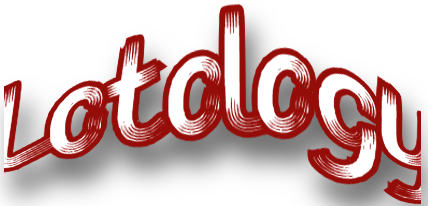The quote “Self-control is strength. Calmness is mastery. You – Tymoff” has resonated with countless individuals seeking personal and professional growth. While the words themselves speak to the importance of emotional regulation and inner peace, they also hold a deeper meaning within the context of leadership.
This article explores how this philosophy, attributed to the enigmatic figure Tymoff, provides a framework for cultivating effective leadership in the digital age, where challenges are abundant and the ability to navigate complexity with composure is paramount.
The Evolving Landscape of Leadership
The digital age has transformed the landscape of leadership, presenting new challenges and opportunities. Leaders today must navigate a world characterized by:
- Rapid technological advancements: Keeping pace with technological changes and adapting leadership styles to leverage new tools and platforms is essential.
- Global interconnectedness: Leading diverse teams across geographical boundaries requires cultural sensitivity and effective communication strategies.
- Increased complexity: The volume and velocity of information, coupled with the ever-changing nature of the digital world, demand leaders who can navigate complexity with clarity and decisiveness.
- ** heightened expectations:** Stakeholders expect leaders to be ethical, transparent, and responsive, while also fostering innovation and driving results.
Self-Control as the Foundation of Leadership Strength
“Self-control is strength” highlights the crucial role of self-discipline in effective leadership. Leaders who can manage their emotions, impulses, and reactions are better equipped to:
- Make sound decisions: By resisting impulsive actions and considering the long-term consequences of their choices, leaders can make informed decisions that benefit the organization and its stakeholders.
- Inspire trust and respect: Leaders who demonstrate self-control earn the trust and respect of their teams, fostering a culture of accountability and collaboration.
- Navigate challenges with resilience: When faced with setbacks or adversity, self-controlled leaders can remain calm and focused, finding solutions and inspiring their teams to persevere.
- Lead by example: By embodying self-discipline, leaders set a positive example for their teams, encouraging them to develop their own self-control and contribute to a more productive and harmonious work environment.
Calmness as the Mastery of Leadership
“Calmness is mastery” emphasizes the importance of emotional regulation and composure in effective leadership. Leaders who can maintain calmness in the face of challenges are better able to:
- Think clearly and strategically: A calm mind allows leaders to analyze situations objectively, identify potential risks and opportunities, and develop effective strategies.
- Communicate effectively: Calmness fosters clear and concise communication, enabling leaders to convey their vision, inspire their teams, and resolve conflicts constructively.
- Build strong relationships: Leaders who exude calmness create a sense of trust and safety, fostering strong relationships with their teams, colleagues, and stakeholders.
- Adapt to change: In the ever-changing digital landscape, calmness allows leaders to embrace change, adapt to new situations, and guide their teams through transitions with confidence.
You – Tymoff: The Personal Journey of Leadership
The phrase “You – Tymoff” personalizes the philosophy, emphasizing that leadership is not just a title or position, but a personal journey of self-discovery and growth. It suggests that every individual has the potential to become a leader by cultivating self-control and calmness.
This resonates with the concept of servant leadership, where leaders prioritize the needs of their teams and empower them to achieve their full potential. By focusing on personal growth and emotional intelligence, individuals can develop the qualities necessary to lead effectively and inspire others.
Integrating the Tymoff Philosophy into Leadership Development
Organizations can integrate the “self-control is strength. calmness is mastery. you – tymoff” philosophy into their leadership development programs by:
- Promoting self-awareness: Encourage leaders to reflect on their strengths and weaknesses, identify their emotional triggers, and develop strategies for managing their reactions.
- Providing mindfulness training: Offer mindfulness and meditation training to help leaders cultivate calmness, reduce stress, and improve focus.
- Creating a culture of feedback: Foster a culture where feedback is valued and encouraged, allowing leaders to learn from their mistakes and continuously improve their leadership skills.
- Mentorship and coaching: Provide mentorship and coaching opportunities for leaders to learn from experienced professionals and develop their leadership potential.
- Encouraging self-care: Emphasize the importance of self-care, including physical health, mental well-being, and work-life balance, to support leaders in maintaining their composure and resilience.
In Action
The Tymoff philosophy can be seen in action in the leadership styles of successful individuals and organizations:
- Example 1: A CEO who practices mindfulness meditation regularly to maintain calmness and make sound decisions during high-pressure situations.
- Example 2: A team leader who fosters a culture of open communication and feedback, empowering team members to share their ideas and contribute to a more collaborative and innovative environment.
- Example 3: An organization that invests in leadership development programs that focus on emotional intelligence, self-awareness, and resilience, creating a pipeline of effective leaders who can navigate the challenges of the digital age.
Conclusion
The quote “Self-control is strength. Calmness is mastery. You – Tymoff” provides a powerful framework for cultivating effective leadership in the digital age. By embracing self-control and calmness, leaders can navigate complexity with composure, inspire their teams, and achieve sustainable success.
As the world continues to evolve at an unprecedented pace, the need for leaders who can embody these qualities will only grow stronger. By integrating the Tymoff philosophy into leadership development programs and fostering a culture that values emotional intelligence, organizations can empower their leaders to thrive in the digital age and create a positive impact on the world.
Want more insights? Keep visiting Lotology for the latest updates and information!

